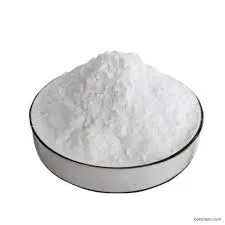- Afrikaans
- Albanian
- Amharic
- Arabic
- Armenian
- Azerbaijani
- Basque
- Belarusian
- Bengali
- Bosnian
- Bulgarian
- Catalan
- Cebuano
- Corsican
- Croatian
- Czech
- Danish
- Dutch
- English
- Esperanto
- Estonian
- Finnish
- French
- Frisian
- Galician
- Georgian
- German
- Greek
- Gujarati
- Haitian Creole
- hausa
- hawaiian
- Hebrew
- Hindi
- Miao
- Hungarian
- Icelandic
- igbo
- Indonesian
- irish
- Italian
- Japanese
- Javanese
- Kannada
- kazakh
- Khmer
- Rwandese
- Korean
- Kurdish
- Kyrgyz
- Lao
- Latin
- Latvian
- Lithuanian
- Luxembourgish
- Macedonian
- Malgashi
- Malay
- Malayalam
- Maltese
- Maori
- Marathi
- Mongolian
- Myanmar
- Nepali
- Norwegian
- Norwegian
- Occitan
- Pashto
- Persian
- Polish
- Portuguese
- Punjabi
- Romanian
- Russian
- Samoan
- Scottish Gaelic
- Serbian
- Sesotho
- Shona
- Sindhi
- Sinhala
- Slovak
- Slovenian
- Somali
- Spanish
- Sundanese
- Swahili
- Swedish
- Tagalog
- Tajik
- Tamil
- Tatar
- Telugu
- Thai
- Turkish
- Turkmen
- Ukrainian
- Urdu
- Uighur
- Uzbek
- Vietnamese
- Welsh
- Bantu
- Yiddish
- Yoruba
- Zulu
Nov . 25, 2024 10:35 Back to list
what kills chewing lice on dogs
Understanding and Treating Chewing Lice on Dogs
Chewing lice, specifically known as Trichodectes canis, are ectoparasites that primarily affect dogs, causing discomfort and various skin issues. Unlike other parasites such as fleas or ticks, chewing lice do not transmit diseases but can lead to significant irritation and secondary infections due to intense scratching. Understanding what kills chewing lice and how to effectively manage an infestation is essential for your dog's health and well-being.
Identification of Chewing Lice
Before addressing the problem, it's crucial to identify whether your dog has chewing lice. Signs include excessive scratching, biting at the skin, hair loss, and visible lice or eggs (nits) on the dog's coat. Chewing lice are usually yellowish or brown and are about 1-2 mm long. They live on the skin and feed on skin debris, making them distinct from their more harmful relatives, sucking lice, which feed on blood.
Treatment Options
When it comes to eliminating chewing lice from your dog, several effective treatment options are available. Here are some of the most common and effective methods
1. Topical Insecticides There are several over-the-counter topical treatments specifically designed to tackle lice. Most of these contain permethrin or pyrethrins, which are potent insecticide agents. Always consult your veterinarian before introducing a new treatment to ensure it's suitable for your dog, especially if they are old, young, or have underlying health issues.
2. Prescription Treatments In more severe cases, your veterinarian may prescribe stronger topical or systemic (oral) treatments. These could include products containing fipronil or imidacloprid, both of which are highly effective in eliminating chewing lice.
what kills chewing lice on dogs

3. Shampoos and Dips Specialized shampoos formulated to kill lice can also be used. These products typically contain insecticidal ingredients and may require repeated applications for complete effectiveness. Make sure to follow the instructions carefully for optimal results.
4. Environmental Control Since lice are highly contagious and can spread through contact with contaminated environments, it is important to clean and treat your dog's living space. Wash bedding, toys, and any fabric your dog frequently contacts in hot water. Vacuum thoroughly to remove any potential lice and eggs from carpets and upholstery.
5. Regular Grooming Regular grooming can help monitor for lice infestations and assist in the early detection of any issues. Using a fine-toothed comb can help remove lice and eggs from your dog’s coat. It's advisable to comb through the fur in sections, focusing on areas where lice are commonly found, such as around the ears, neck, and base of the tail.
Prevention
Preventing chewing lice infestations involves maintaining good hygiene and regular veterinary check-ups. Ensuring your dog’s environment is clean, and avoiding contact with infected animals can reduce the risk of infestation. Regular grooming and the use of preventive treatments during flea and tick season will also help keep these parasites at bay.
Conclusion
While chewing lice are not life-threatening, they can cause significant discomfort and skin irritation for your dog. Recognizing the signs early and implementing appropriate treatment options will ensure your dog remains healthy and happy. Consult your veterinarian for the best course of action and to discuss preventive measures. By staying informed and vigilant, you can help protect your furry friend from the nuisance of chewing lice.
-
Guide to Oxytetracycline Injection
NewsMar.27,2025
-
Guide to Colistin Sulphate
NewsMar.27,2025
-
Gentamicin Sulfate: Uses, Price, And Key Information
NewsMar.27,2025
-
Enrofloxacin Injection: Uses, Price, And Supplier Information
NewsMar.27,2025
-
Dexamethasone Sodium Phosphate Injection: Uses, Price, And Key Information
NewsMar.27,2025
-
Albendazole Tablet: Uses, Dosage, Cost, And Key Information
NewsMar.27,2025













